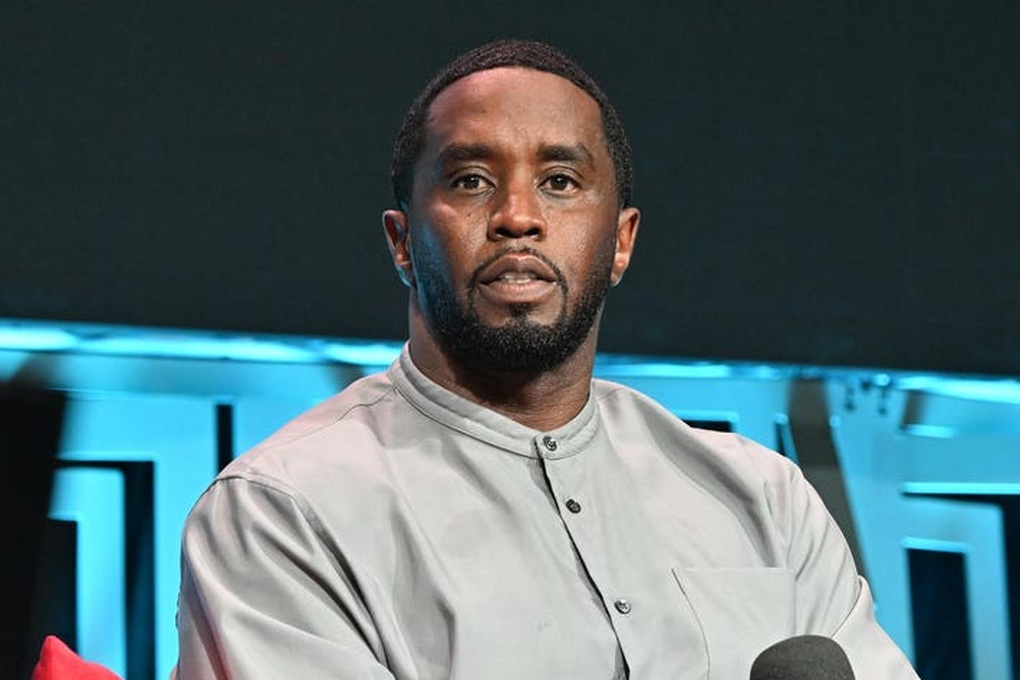In recent developments, Sean “Diddy” Combs, a renowned music mogul, is currently being held in a federal prison without bond following his arrest on serious charges of sex trafficking and conspiracy. Combs has pleaded not guilty to the allegations, which initially involved his ex-girlfriend Cassie Ventura.

The case escalated when additional accusers, including music producer Rodney “Little Rod” Jones, also came forward with similar claims, alleging they were drugged and sexually assaulted by Combs. Despite these denials, a 2016 video aired by CNN showed Combs physically assaulting Ventura in a Los Angeles hotel hallway. The incident, recorded in the media, resulted in Combs issuing a public apology.
One of the more surprising voices to emerge amid these accusations is Suge Knight, the founder of Death Row Records. Speaking from behind prison walls during a call on NewsNation, Knight, who is currently serving time for manslaughter, discussed the Combs case and the broader implications it holds for the music industry.
Suge Knight Speaks Out on Combs’ Imprisonment

Knight, a former rival of Combs from the infamous East Coast-West Coast feud of the 1990s, expressed his opinion on Combs’ incarceration. He acknowledged that prison can be dangerous for high-profile figures, warning that the environment could lead Combs to be placed on suicide watch if he is perceived to be a threat to himself. Knight also offered advice for survival in prison, suggesting Combs consider opting for the “Jewish diet” to receive better meals.
Knight further noted that jail is an inherently negative environment where inmates might harm Combs to make a name for themselves. However, he stressed that everyone in life must learn from their mistakes and work on self-improvement.
Knight on Combs’ Allegations and Industry Culture
The conversation turned to the allegations against Combs, including the notorious “freak offs,” which were described in Cassie Ventura’s lawsuit and the federal indictment. These events allegedly involved Combs orchestrating long, drug-fueled parties where participants, some transported across state lines, were coerced into sexual acts. The indictment accuses Combs of using threats, physical violence, and the distribution of drugs to maintain control over victims.
Knight commented on these accusations, stating that Combs’ behavior was learned from industry figures before him. He named prominent record executives like Russell Simmons, Clive Davis, and Jimmy Iovine as those who contributed to what he described as a longstanding culture of abuse in the music industry. Knight also made a bold claim, alleging that these executives were involved in a “sex trade” that influenced younger figures like Combs.
When asked about Combs’ treatment of women, including Cassie Ventura, Knight remarked that violence had been part of Combs’ relationships. He referenced an incident where Combs allegedly assaulted another woman, Capricorn, who eventually settled the matter with money that, according to Knight, was provided by Interscope Records.
Industry-Wide Implications and Knight’s Allegations
Knight’s allegations have not gone without response. Clive Davis, one of the executives named, vehemently denied the claims, stating that they are “100% false.” However, Knight is not the only individual suggesting that Combs’ behavior may have been influenced by a toxic industry culture. Jean Deal, Combs’ former bodyguard, echoed these sentiments in a separate interview, stating that Combs had learned such behavior from the executives he admired.
Knight went further, claiming that certain practices in the music industry, such as the infamous “ball egg test” hazing ritual, were commonplace, particularly in Hollywood circles. While these claims are yet to be substantiated, they paint a picture of a deeply problematic industry culture.
Combs’ Legal Battle Continues
As the allegations mount, Combs’ legal team remains firm in their defense. His lawyer, Mark Agnifilo, expressed confidence in Combs’ innocence and vowed to fight the charges vigorously. Agnifilo highlighted the difficult conditions Combs faces in the Metropolitan Detention Center, where he is being held, and pledged to move the case to trial as quickly as possible.
The trial, when it begins, is expected to be highly contentious, with Combs potentially testifying to defend his actions. It is poised to be a landmark case, exploring not only the allegations against Combs but also the broader culture of exploitation and abuse within the music industry.
For now, the world watches as one of the biggest names in entertainment faces a legal battle that could have far-reaching consequences for the industry as a whole.





